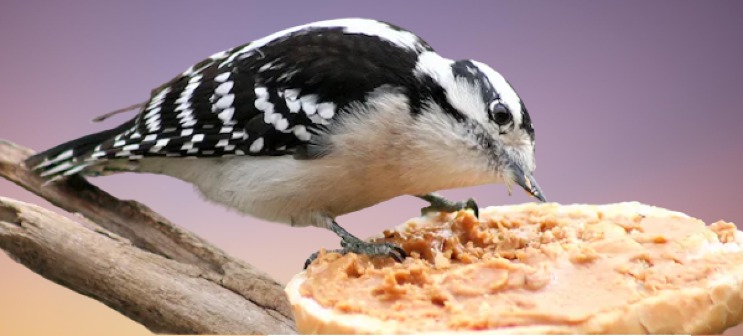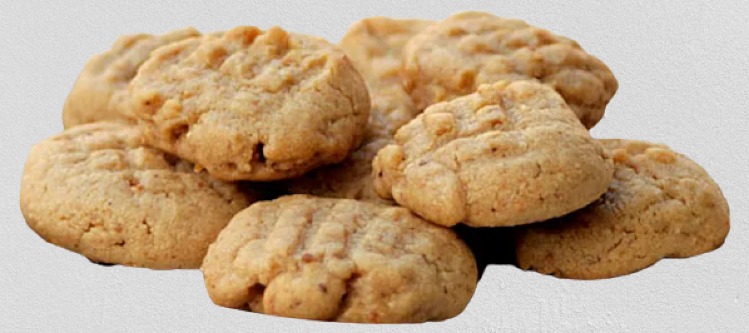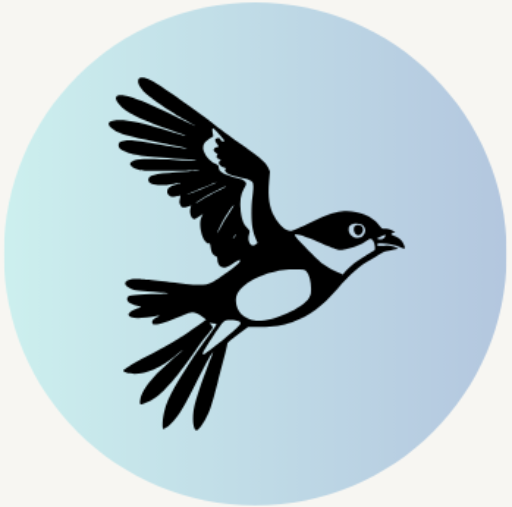Peanut butter is a good high-protein sustenance for birds, and they can eat any of the same types humans do. Assuming that you’re getting it explicitly for birds, search for normal or natural sorts with the least added substances. Have a go at offering crunchy peanut butter for an extra nutty treat.

Accepting you’ve any time examined whether it’s safe to give your nut butter to the birds in your nursery, you’re following after some admirable people. Many bird sweethearts are keen on the potential benefits and risks of dealing with nut butter for birds. In this article, we’ll dive into the subject to outfit you with every one of the information you need to make a good choice.
Safety Considerations
With regards to taking care of birds’ peanut butter, it is important to guarantee their security. While nut butter itself isn’t hurtful to birds, it’s fundamental to be aware of specific added substances that can present dangers.
Settling on normal, unsalted nut butter without added substances is essential to forestall any likely damage to our padded companions. Added substances like salt or xylitol can be destructive to birds’ well-being, so it’s ideal to keep away from nut butter assortments containing these fixings.
By picking a first-class, added sans-substance nut butter, we can outfit birds with a safeguarded and nutritious treat that overhauls their flourishing with close to no troublesome effects.
Nutritional Benefits of Peanut Butter for Birds
Peanut butter offers a couple of supporting benefits for birds, making it a significant extension to their eating schedule. Wealthy in fats and proteins, nut butter furnishes birds with fundamental energy to fuel their everyday exercises.
This supplement’s thick food source is especially advantageous during colder months when birds require extra energy to keep up with their internal heat level.
Moreover, peanut butter is a helpful and promptly accessible food choice that can enhance birds’ weight control plans, adding to their general well-being and prosperity. By integrating nut butter into their taking care of schedule, bird lovers can furnish birds with the fundamental supplements they need to flourish right at home.

Bird Species that Enjoy Peanut Butter
While not all bird species might be leaned to consume peanut butter, there are a few avian companions that relish this scrumptious treat. Species like woodpeckers, nuthatches, chickadees, and bluebirds are known to be especially partial to nut butter when presented in appropriate feeders.
Their appreciation for peanut butter gives bird fans a great chance to draw in and notice these enamoring birds right at home. By understanding the inclinations of various bird species, we can tailor our bird-taking care endeavors to establish an inviting climate that supports a different scope of padded guests.
Methods of Offering Peanut Butter
To guarantee the security and satisfaction of birds while offering peanut butter, it’s fundamental to utilize fitting strategies that give simple admittance to the treat while limiting expected gambles. One powerful technique is to utilize particular bird feeders planned explicitly for nut butter.
These feeders commonly highlight wire cross sections or stages where peanut butter can be spread or set, permitting birds to get to it effectively without the gamble of getting caught or harmed.
Balancing feeders with wire networks is especially well known, as it gives a safe and stable stage for birds to benefit from. Furthermore, guaranteeing that the nut butter is spread daintily and equally on the feeder surface keeps birds from stalling exorbitant sums out to their mouths or quills.
By utilizing these strategies, bird devotees can offer peanut butter to their avian companions in a protected and pleasant way, improving their bird-watching experience while giving important sustenance to the birds.
Advantages of Feeding Birds Peanut Butter
Taking care of birds’ peanut butter offers a few benefits for both bird devotees and the avian guests in their nurseries.
Wholesome Advantages: Peanut butter is a rich wellspring of fats and proteins, giving birds fundamental energy to fuel their day-to-day exercises. This supplement’s thick food helps birds stay aware of their prosperity, especially during seasons of high energy interest, such as replicating or movement.
Attracts an Arrangement of Bird Creature assortments: Many bird species are attracted to peanut butter, including woodpeckers, nuthatches, chickadees, and bluebirds. By offering nut butter, bird sweethearts can attract an alternate extent of cushioned visitors to their nurseries, redesigning their bird-watching experience.
Helpful and Simple to Offer: Peanut butter is a helpful and promptly accessible food choice that can be handily proposed to birds utilizing particular feeders. Its spreadable nature considers the simple application to feeder surfaces, making it a problem-free decision for birds to take care of.
Advances Perception and Pleasure: Watching birds feed on peanut butter can furnish bird devotees with long periods of amusement and satisfaction. Noticing their taking care of ways of behaving and associations can develop our appreciation for these entrancing animals and their regular ways of behaving.
Supports Rehash Visits: When birds find a dependable wellspring of peanut butter, they are probably going to get back to a similar taking care of spot routinely. This sets open doors for long-haul bird-watching and encourages a feeling of association with the avian guests in our nurseries.
Generally speaking, taking care of birds’ peanut butter is a compensating movement that benefits the two birds and bird devotees the same. By giving birds nutrition and connecting with food sources, we can add to their thriving while at the same time participating in the greatness and wonder of nature decisively in our yards.
Possible Dangers and How to Alleviate Them
While dealing with birds peanut butter can be helpful, there are potential perils that bird enthusiasts should be aware of. By playing it safe, these dangers can be limited to guarantee the security and prosperity of our avian companions.
Corpulence and Irregularity: Peanut butter is calorie-thick and high in fats, which can prompt stoutness and dietary uneven characteristics in birds whenever consumed unnecessarily. To relieve this gamble, offer nut butter sparingly as an enhancement to a reasonable eating regimen of seeds, organic products, and bugs. Observing bird movement and taking care of sums as needed can assist with forestalling overconsumption.
Added Substances and Impurities: Certain added substances and pollutants present in some business peanut butter items can be unsafe to birds. To stay away from this gamble, pick normal, unsalted nut butter without added substances or additives. Check the fixing list cautiously before buying nut butter for bird-taken care of purposes.
Feeder Plan: Unseemly feeder plans or arrangements can present dangers to birds, like catching or wounds. Guarantee that peanut butter feeders are planned in light of bird security, highlighting wire cross sections or stages that permit birds to get to the nut butter without stalling out. Routinely examine feeders for any indications of wear or harm, and fix or supplant them on a case-by-case basis to keep up with their well-being.
Peanut Butter Quality: Low-quality or foul nut butter can adversely affect bird well-being. Pick new, great peanut butter from legitimate sources to guarantee its security and dietary benefits. Try not to utilize nut butter that has a foul scent or surprising appearance, as it might demonstrate decay.
By tending to these likely dangers and executing fitting moderation systems, bird aficionados can partake in the advantages of taking care of nut butter to birds while limiting any antagonistic impacts on their well-being and prosperity. Capable bird taking care of practices are fundamental for cultivating a protected and inviting climate for our padded companions.
Alternatives to Peanut Butter
While peanut butter is a renowned choice for dealing with birds, there are a couple of elective food decisions that can give equivalent empowering benefits and attract a variety of bird creature assortments to your nursery.
The following are a couple of decisions to consider:
Suet: Suet is a high-energy food delivered utilizing animal fat mixed in with trimmings like seeds, normal items, or bugs. It’s particularly fascinating to mess with eating birds like woodpeckers, nuthatches, and chickadees. Suet feeders are by and large open and can be stacked up with different suet flavors to take extraordinary consideration of birds’ tendencies.

Mealworms: Live or dried mealworms are a protein-rich food source esteemed by many bird species, including bluebirds, robins, and wrens. They can be introduced specifically to mealworm feeders or distributed on dealing with stages to attract bug-eating birds to your nursery.
Sunflower Seeds: Sunflower seeds are a staple food for by a wide margin most bird species and are rich in fats, proteins, and significant upgrades.
Tips for Attracting Birds Using Peanut Butter
The following are a couple of clues to help you with attracting extra birds to your nursery using peanut butter:
Pick the Right Peanut Butter: Select customary, unsalted nut butter without added substances or added substances. Avoid varieties with added sugar or xylitol, as these can destroy birds. Rich or crunchy nut butter can be sensible decisions, depending on your tendencies.
Can all bird species safely consume peanut butter?
While many bird species appreciate peanut butter, it’s vital to screen their reaction and change in like manner.
How frequently should peanut butter be offered to birds?
Peanut butter ought to be offered sparingly as an enhancement to a fair eating routine, particularly during times of high energy interest.
Are there any specific safety guidelines for feeding birds peanut butter?
Try not to offer peanut butter with added substances like salt or xylitol, and guarantee it’s introduced in bird-safe feeders to forestall mishaps.
What are some suitable alternatives to peanut butter for bird feeding?
Suet, mealworms, and sunflower seeds are sensational choices that give relative supporting benefits to peanut butter.
How can I observe and document bird behavior around peanut butter feeders?
Set up perception focuses close to the feeders and keep a diary or utilize a camera to report bird communications and ways of behaving.
Conclusion
Taking care of birds with peanut butter can be a fulfilling and charming experience for bird lovers, offering an extraordinary chance to draw in an assortment of bird animal varieties to your nursery and notice their entrancing ways of behaving very closely.
Despite a few normal fantasies and confusions, peanut butter can be a protected and nutritious food hotspot for birds when offered mindfully.
By picking normal, unsalted peanut butter and utilizing fitting feeders intended for bird security, you can furnish birds with a scrumptious and nutritious treat that supplements their eating routine and advances their well-being and prosperity. Moreover, offering various elective food varieties close to nut butter guarantees that birds approach a reasonable eating routine that meets their wholesome requirements all year.
All in all, taking care of birds with nut butter is a basic yet powerful method for drawing in and supporting our avian companions while cultivating a more profound association with the normal world.
By following the tips and suggestions framed in this article and scattering normal legends and misinterpretations, bird fans can establish an inviting climate for birds and partake in the magnificence and marvel of bird watching squarely on their lawn.
Read More From Nest to Sky: The Excursion of How Do Birds Learn to Fly?
